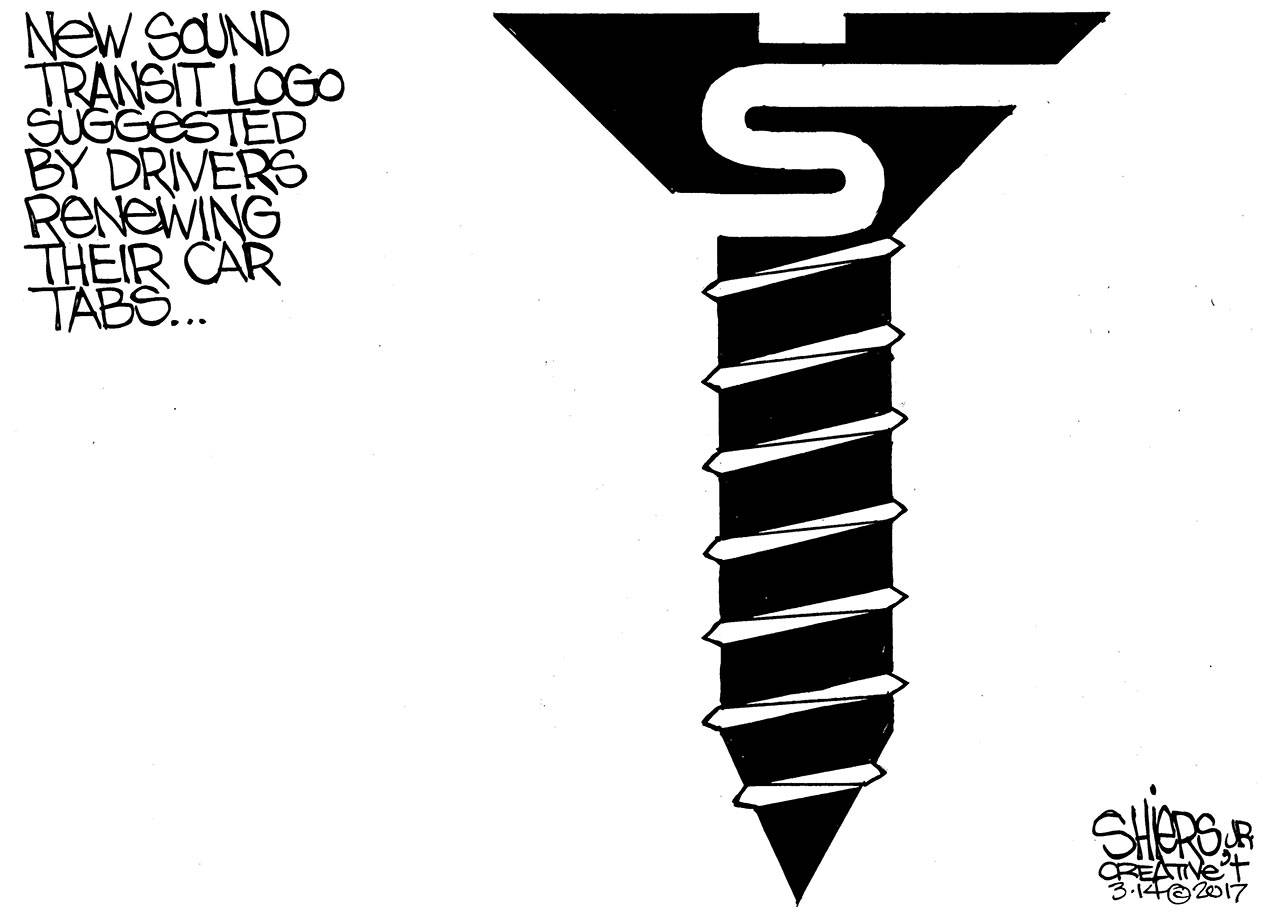This could be interesting.
Thursday afternoon directors of Sound Transit will hold their regular monthly meeting in Seattle. It will be their first sit-down since an outbreak of car tab fury in parts of Snohomish, King and Pierce counties.
The meeting is at 1:30 p.m. at Union Station, Ruth Fisher Boardroom, 401 S. Jackson St.
This furor infecting people living within the boundaries of the regional transit authority is a side-effect of Sound Transit 3, the $54 billion expansion of bus and light rail service approved by voters in November.
Its passage means those in the taxing district must swallow a large tax cocktail consisting of an increase in car tab fees, a hike in the local sales tax and a new property levy.
It’s not going down easy for everyone. Since car tab renewal bills started arriving last month, people have become aware Sound Transit may be getting more out of their pocket than even they expected.
Under the ST3 measure, the motor vehicle excise tax rate nearly quadrupled from 0.3 to 1.1. Because Sound Transit uses an outdated depreciation model, it is applying that rate on vehicles with inflated values thus boosting the amount of bills and revenues to the agency.
Sound Transit is now committed to switching to a newer depreciation method in 2029. Its executives have told state lawmakers if forced to change in 2018, the agency would collect an estimated $2 billion less in car tab tax receipts in that 11-year period— money already pledged to ensure light rail gets to Everett and Tacoma in the next quarter century.
Snohomish County Executive Dave Somers, who is Sound Transit’s chairman, said he will ask the board Thursday to formally direct staff to work with folks in the Legislature on ways to respond to concerns with the excise tax approach without endangering the schedule of projects promised in the package approved by voters.
Thursday might be a good time for board members to get other questions answered as well.
Seeds of this controversy were planted in 2015 when lawmakers included authority for Sound Transit to raise taxes for ST3 in the $16 billion state transporation improvement package.
Sound Transit’s brain trust crafted the language tucked into the 2015 bill. It effectively ensured any new car taxes would be calculated using the 1996 method of depreciation rather than a 2006 update developed by the state.
Somers and Everett Councilman Paul Roberts, another Sound Transit board member, said they recall plenty of conversations on how voters were being asked to approve a significant tax package.
But they — and probably their fellow board members as well — could not recall any conversation on which vehicle depreciation method would or should be used. If it did come up, it was not presented as a notable policy decision,
Thursday offers a chance to find out exactly when this $2 billion decision was made, by whom and why.
Meanwhile, the outbreak of fury has spread to Olympia where for the past month Sound Transit’s been a punching bag for its critics in the Legislature.
Republicans in the House and Senate are pounding them with bills to force the bus-and-rail megapower to change practices immediately and to block the state Department of Licensing from collecting Sound Transit’s share of car tab taxes until it happens.
Democrats in the two chambers are less aggressive, jabbing with bills directing the regional transit authority to use the newer depreciation schedule on future bond sales so as not to interrupt the current revenue flow. They also have bills to provide rebates to lower income individuals.
There are roughly a dozen MVET-inspired pieces of legislation parked in the House and Senate transportation committees. The leaders of those panels are watching to see what directors of Sound Transit do.
That adds further interest in this week’s gathering.
Political reporter Jerry Cornfield’s blog, The Petri Dish, is at heraldnet.com. Contact him at 360-352-8623; jcornfield@heraldnet.com. Twitter: @dospueblos.
Talk to us
Please share your story tips by emailing editor@kentreporter.com.
To share your opinion for publication, submit a letter through our website https://www.kentreporter.com/submit-letter/. Include your name, address and daytime phone number. (We’ll only publish your name and hometown.) Please keep letters to 300 words or less.

